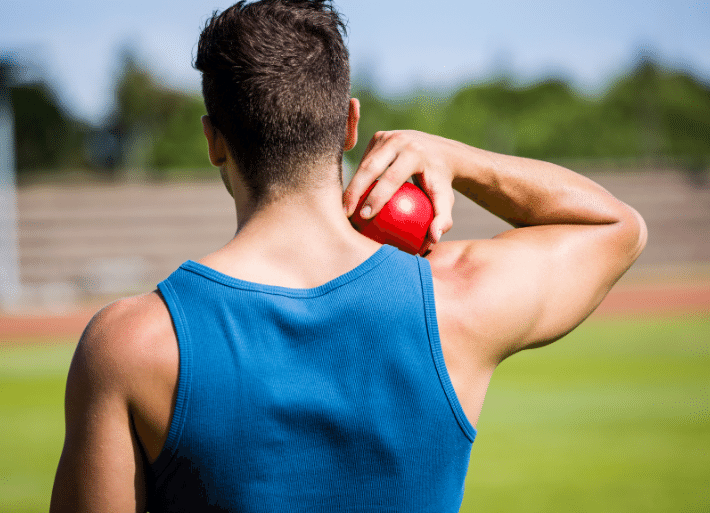
Winter Training for Throwing Athletes: Determining Your Needs
BY BEN HAWKES
As we head into the off-season with 2022 now firmly in the rear view mirror, coaches and athletes will be making plans for the coming season and the months of training leading into it. Before making any major plans, though, it’s important to know that you’ll be able to actually execute them. The question, really, is...
What do I need to have as an athlete?

We start to answer this question with a basic assessment of the previous season. What did we do well, and what did we miss?
What did we do well in our athletics throwing, and what did we miss?

To give an example, let’s say you’re a discus thrower. You got a marginal PB, but got hurt early in the season and struggled to get back to form. Technically you’re happy, but the injury affects your ability to do what you’re trying to do in the throw. Your light disc broke in training a few weeks ago. You train twice per week with your coach, but you’re learning to drive this year, so you want to go more often. You’re also going into your second year of college with A-level exams in June. What can we do?
WHAT WENT WELL
- Technical development
- Consistency of training
- Lifestyle management
WHAT WAS MISSED
- Injury management
- Physical development
- Competition management

Now, you want to look forwards. What is changing in my life this year? Is there anything new I want to do in training?
LIFESTYLE CHANGES
- A-levels
- Driving licence
- University applications
TRAINING CHANGES
- Increase throwing frequency
- Buy a gym membership
Sweet - good assessment. Now, how do you action it to achieve what you want to? Let’s break it down and go through it.
THE TECHNICALS OF ATHLETIC TRAINING

So you want to throw more often - you’ll need some discs for that. What ones? Speak to your coach to think about what you want to achieve in your throw and the best ways of doing that. Do you need light discs? Yours broke a few weeks ago, remember? Maybe you need a heavy disc. Did you want a Denfi tool with that? Maybe a spare pair of throwing shoes? They’re pretty hard to come by nowadays!
Make a list and prioritise what you need. Understand your means, so you don’t overspend!
PHYSICAL TRAINING PLANS FOR ATHLETES

You got a gym membership! What do you want from it?
Do you just want to go there and have fun? Sweet. Do you want to change how you feel & look? Awesome. Do you want to do some targeted rehab for your injury and then get stuck into some physical prep training for throwing? Great. How can you best achieve these goals?
Speak to your throws coach, reach out to professionals, and read our blogs... 😉. Get the advice you need, and if you have the means to do it, find a PT or a coach. If you’ve never done this kind of stuff before, work into it over time, so you don’t hurt yourself!
Maybe you also want to check in with a physiotherapist about your injury. Build that relationship so you have a point of contact if anything else crops up.
TACTICAL TRAINING FOR ATHLETES

Maybe one for further down the line closer to the season, but also maybe not. What competitions are important to you next year? Find the dates, and plan for them. Maybe you struggled with ‘owning your throw’ this year. Can you affect that in training?
Measure your throws and work in zones. If you can take 20 throws between 85 and 90% of your PB, you know you’re in a good place, and you can reproduce that in a competition. Build from it.
Go back, look at what needs work, and affect some change.
PSYCHOLOGICAL SKILLS TRAINING

Probably the most important thing on this list. You have A-levels coming up - you’re going to be stressed. You’re getting a car, that’s expensive - do you need a part-time job? This is all about managing stressors so that you understand where you are and what you need so you don’t get overwhelmed with everything. Planning ahead with this stuff reduces uncertainty and prevents surprises - both of which can really knock you off the rails.
Can you plan revision times for your exams and work around that with your training?
Can you find a job you enjoy and that isn’t massively physically or mentally demanding? Can it tie in with what you want to do later down the line?
Staying on top of this will give you peace of mind, clarity of thought and ultimately help you achieve more inside and outside of sport. It is so important!
The other thing I wanted to mention that didn’t quite fit into these categories is planning your next steps. If you want to continue throwing at university, reach out to the coach you’ll be working with there. Have honest conversations with your current coach about it. Maybe they can work together and make the transition nice and smooth. If you’re headed overseas for university, this is extra important! Minimising transplant shock will help you no end.
I hope this helps. Until next time ✌🏼


Leave a comment